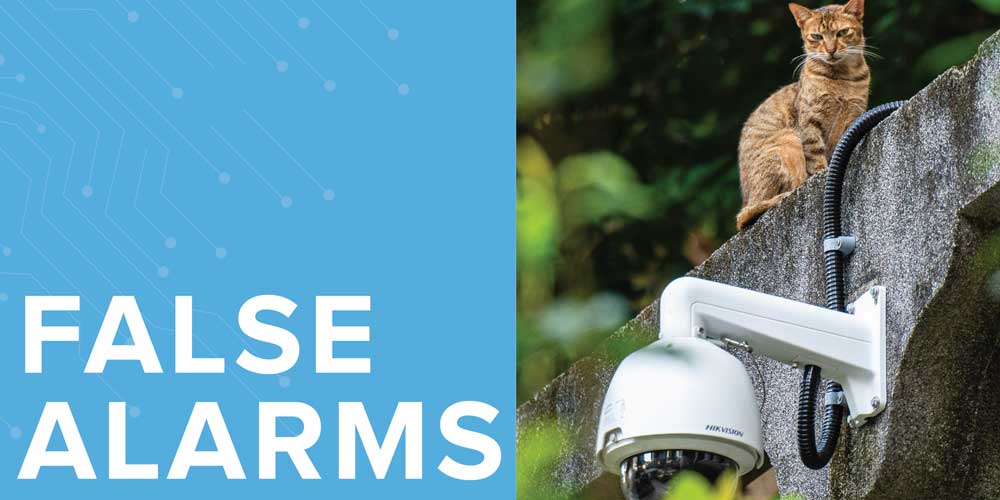Video surveillance systems with alarming capabilities are a valuable crime-fighting tool for businesses. However, they also can become a source of disruption and significant expense, if they are more proficient at sounding false alarms than real ones. In fact, 95% of all processed emergency-response events turn out to be false alarms. Not only is this problematic for the organizations experiencing them, but also for a city’s EMT, fire and police departments. Instead of allocating resources to fighting actual crime and serious incidents, emergency responders are increasingly being summoned only to find out it’s nothing more than a false alarm. To stop this trend, some cities are implementing false alarm fines on security dealers and even their customers.
Is it possible to reduce false alarms? In fact it is, and these five tips can help.
#1: Leverage Artificial Intelligence and Machine Learning
In simple terms, Artificial Intelligence (AI) and machine learning technology make it possible for users to “educate” their cameras on what is cause for alarm and what is not. At a high level- Companies collect security data over a period of time and then use that data to teach their video systems what is normal. This allows them to identify activity patterns that indicate a credible threat. This reduces the percentage of false alarms and automates the monitoring processes- leaving the staff free to focus on streamlining other aspects of the business.
#2: Support AI with a Fully Trained Surveillance Team
On its own, it’s a good idea to give your video systems AI a boost while it ramps up machine learning capabilities. It will take some time for the system to learn patterns of threatening or suspicious behavior. To ensure alarm accuracy during this initial phase, we recommend supporting AI and machine learning technology with a fully trained remote monitoring team. After that, keep that team on retainer to provide 24/7 property monitoring and rapid response to security events.
#3: Ensure Clear Communication with Customers
Do you have a clearly defined response plan in place for when an alarm is triggered? For example, do you call your customer directly? Or do you bypass the customer and call the police department? While not every company can manage the capacity of alarm notifications, if possible, it’s a good idea to first reach out to the customer for verification. For example, if a person is detected on property during off-hours, a quick call to the customer can help verify whether that “intruder” is actually an employee or approved visitor to the site.
#4: Frequently Monitor the Health of Customer Cameras
The reality is that cameras, systems, and software are prone to malfunction. This is why monitoring the health and maintenance of customer cameras is so critical to reduce false alarms. Additionally, many systems can trigger an alarm upon reboot. That means it is equally important to know when resets are scheduled to take place. Automate your monitoring processes (including monitoring camera health) to alert your remote monitoring team when things aren’t working properly.
#5: Work Directly with On-Site Security Guards
Companies will boost their results – in turn lowering false alarm rates – when humans and technology work together. Guards can’t provide 24×7, 360-degree surveillance around a facility, so they may not have an accurate understanding of events taking place beyond their line of sight. Remote video monitoring services support on-site guards and aid them by providing comprehensive property monitoring with no surveillance gaps.
Pro-Vigil Bonus Tip
Pro-Vigil’s Remote Video Monitoring as a Service technology can significantly reduce the risk of false alarms. Use our product right out of the gate without any upfront investments required for system installation. AI, machine learning technology, and a dedicated remote video monitoring surveillance team can equip you with everything you need. It is also important to utilize camera health monitoring functionality and high compatibility with any IP camera.
Interested in partnering with us to reduce your customers’ false alarms and offer a better security product? Click here to get in touch with us.






